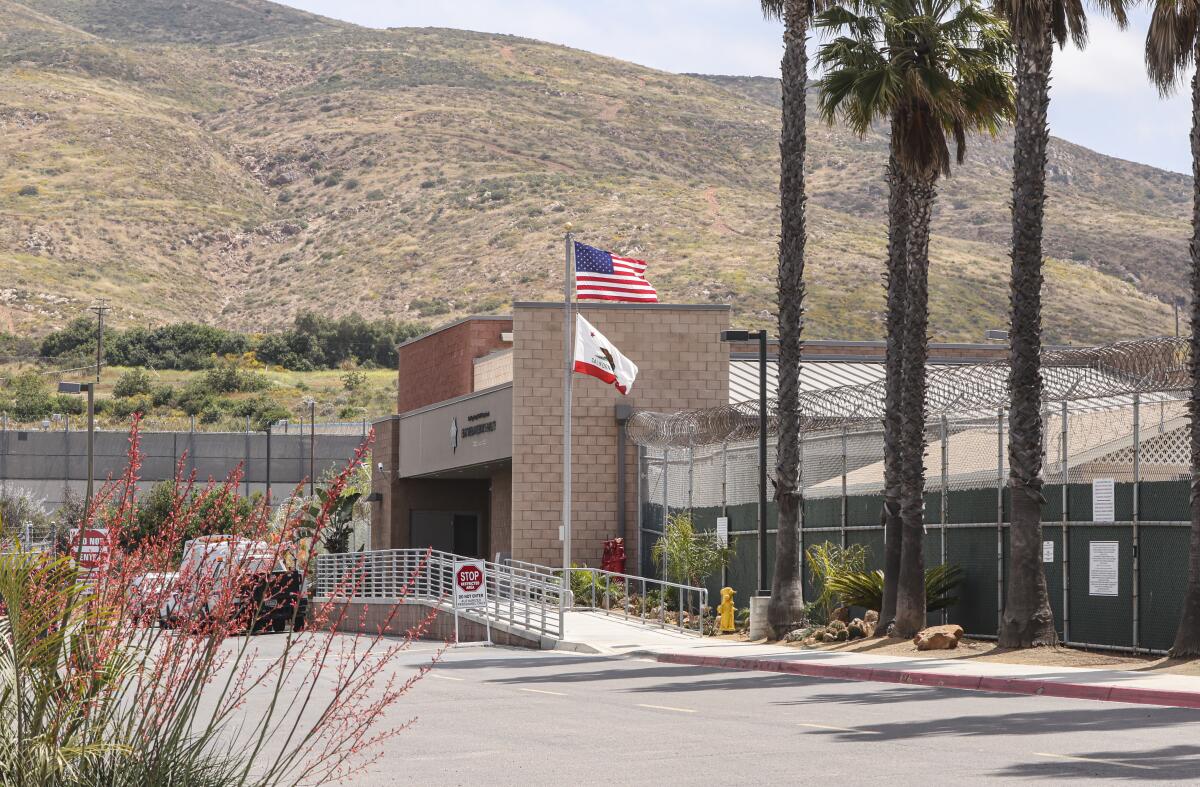Probation leaders across California disband secretive nonprofit group

A group of probation chiefs from nearly every county in the state has decided to disband a secretive nonprofit organization they set up to work out of the public eye on a sweeping state-ordered reform of juvenile justice.
The decision came five days after the Union-Tribune published a story on the group’s history, organization and financing and followed months of questioning by advocacy groups, some of which sued over its approach to state open meeting laws and its rejection of requests to review its records.
The move by the County Probation Consortium Partnering for Youth Realignment was quietly announced in a news release June 23. The unsigned release, which was posted on the group’s website, said the board of directors had decided that the “critical need” for the group had ended at the end of June with the closure of state juvenile detention facilities and transfer of youths to county facilities.
The board, which is made up of probation chiefs, said it would wind down operations by the end of the year.
The decision came four months after the group was sued by a coalition of advocacy groups, which said the consortium was violating state laws concerning open meetings and open records.
The announcement abruptly ends an unusual chapter in the nearly three-year-long plan by the state to close down the youth detention system and transfer responsibility back to the counties. In response to that legislation in early 2021, 55 of the 58 probation chiefs in the state quietly banded together and formed the nonprofit. It was focused on housing and treating those youths in the system who needed to be held in secure facilities, which not all counties in the state have.
When they agreed to work together, the chiefs also decided to set up the consortium in a unique way, incorporating as a 501(c)(3) nonprofit, funded with membership dues drawn from the public funds of each county and a contract with the state.
When the advocacy groups asked for records of the meetings and other documents in August, lawyers from a firm retained by the consortium responded it was not subject to the open records or meetings laws because the group was not a government agency and was not making policy or legislation. That position triggered the lawsuit.
An expert on government transparency criticized that stance, arguing the law holds that any entity that conducts a “core government function” is subject to the open government and transparency laws of the state.
In the application for tax-exempt status submitted to the Internal Revenue Service, the consortium wrote that the stated goal of the group was to “lessen the burdens of government” by coordinating realignment efforts by counties, drafting model agreements between counties for housing some youths, and creating a database of treatment programs in counties.
The records also showed that the consortium had both short-term goals of dealing with the immediate issues relating to realignment and longer-term plans three or four years out that could include forming a “legal entity” like a joint powers authority “to ensure counties can continue to access appropriately responsive and high-quality treatment capacity.” Under California law, a joint powers authority can be set up as a separate entity to perform a specific government role; it is subject to open records and meetings laws.
None of the materials indicated the group would close down after the initial wave of youths were returned to counties.
Elizabeth Siggins, the executive director of the consortium, said in an email that the group decided to disband because the short-term goal of managing the return of youths from the state to county facilities had been completed, and that, as it turned out, there was less need to house youths in other counties than first thought. She said documents that discuss a longer-term role were done before the formation of the consortium when there were “many discussions taking place” at that time.
“The non-profit organization was the short-term solution with the idea that if a longer-term solution were needed it would likely be established as a JPA,” she wrote in an email. “At this time, it is not clear that is needed.” She said the decision to stop had nothing to do with the lawsuit, which she called “baseless.”
Erin Palacios, a lawyer with the Youth Law Center who filed the suit on behalf of a collection of juvenile justice groups called California Alliance for Youth and Community Justice, said it was “welcome news” that the consortium was dissolving.
“An organization that fights so hard to avoid transparency and public participation cannot effectively or appropriately coordinate California’s juvenile justice realignment,” she wrote in an email.
She said her group had no indication that the consortium was closing down and was preparing for continued litigation.
The consortium collected $750,000 from member counties — money largely drawn from public realignment funds each county received — plus a consulting contract of the same amount from a new state agency created to oversee realignment. Siggins said whatever money was left at the end of the year would be returned to counties on a proportional basis.
The lawsuit is still pending, Palacios said. The coalition of youth groups still wants to know “how the money was used to benefit the public, how much remains, and where the remaining funds will go now.”
More to Read
Start your day right
Sign up for Essential California for news, features and recommendations from the L.A. Times and beyond in your inbox six days a week.
You may occasionally receive promotional content from the Los Angeles Times.







